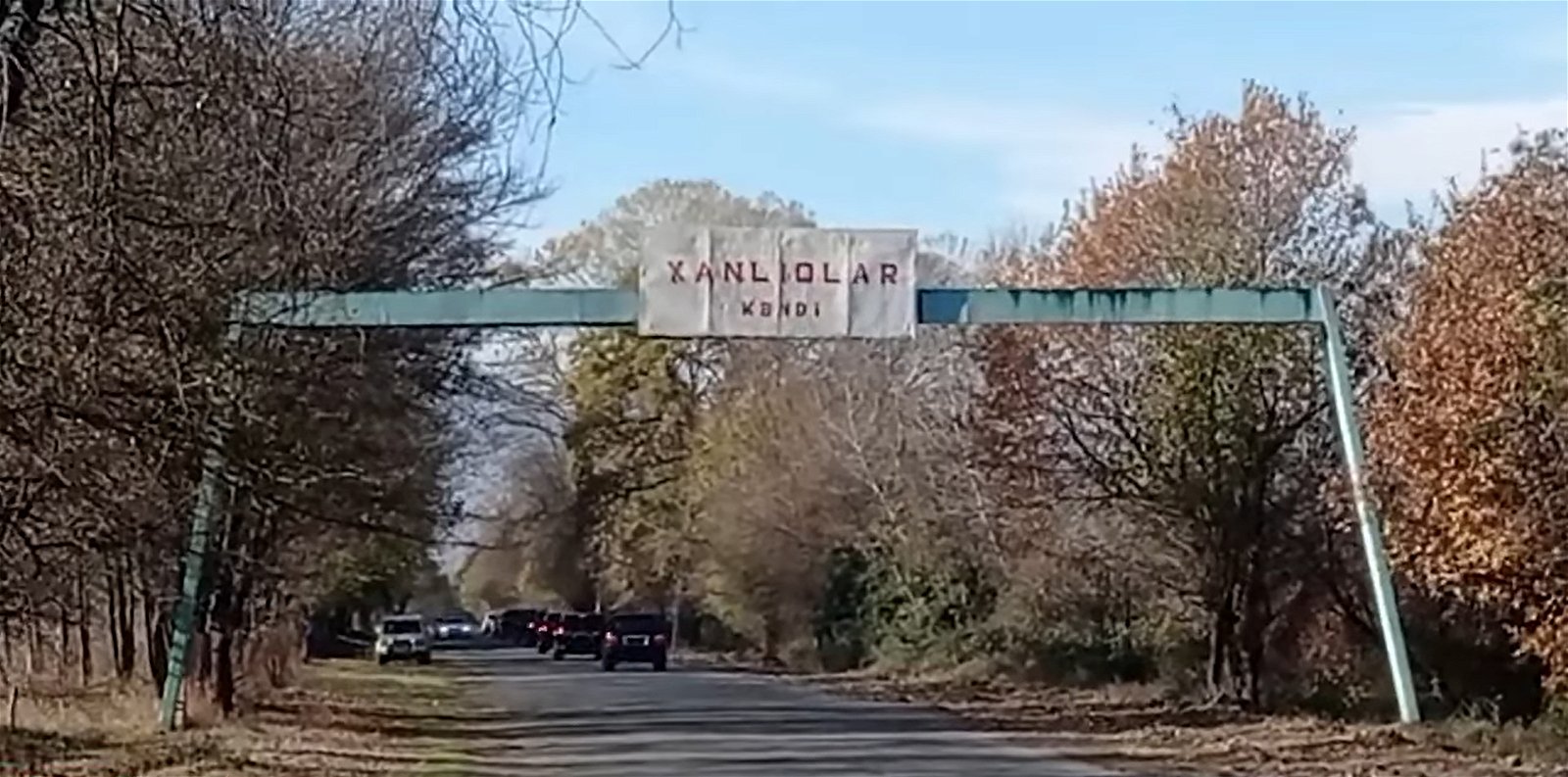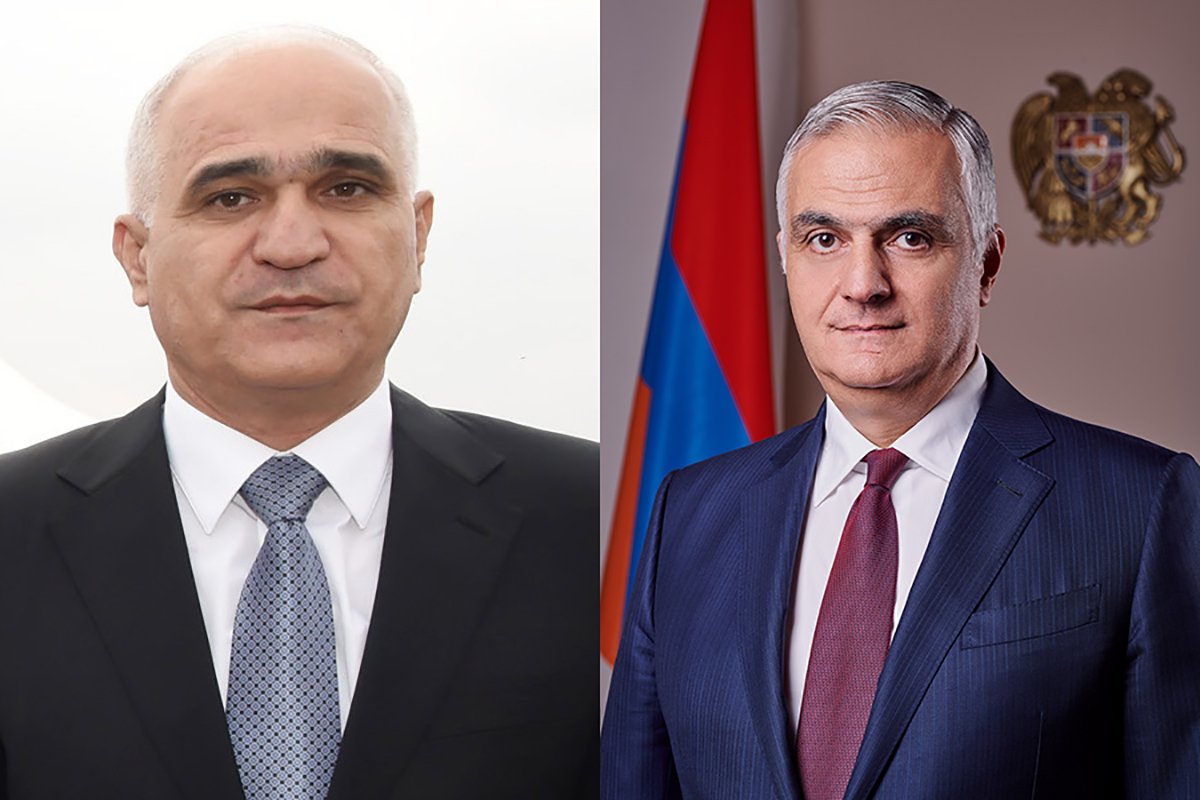YEREVAN—The sixth session of the Armenia-Azerbaijan border delimitation commission was held today along the Ijevan-Kazakh border.
The Armenian and Azerbaijani Foreign Ministries shared short, identical statements after the meeting that did not report any agreements or offer details of the meeting.
Key representatives, including Armenian Deputy Prime Minister Mher Grigoryan and Azerbaijani Deputy Prime Minister Shahin Mustafayev, engaged in discussions focused on the demarcation of the state border between the two nations. The previous session of the Armenian-Azerbaijani commissions occurred on November 30, with Grigoryan and Mustafayev jointly chairing the proceedings.
Border demarcation has been a central hurdle in the ongoing Armenia-Azerbaijan peace talks. Azerbaijan has refused Armenia’s proposal to use Soviet-era maps to delimit the border. Azerbaijan has also said that a peace treaty should be signed before an agreement is reached on border delimitation, which Armenian authorities say would open the door to Azerbaijani territorial claims against Armenia.

The issue of enclaves has been in the spotlight of ongoing talks between Armenia and Azerbaijan. Azerbaijani President Ilham Aliyev, in a January 17 interview, demanded the return of eight Azerbaijani villages within Armenian territory, including four enclaves and four non-enclave villages. “The four villages that are not enclaves should be returned to Azerbaijan without any preconditions,” he said. For the enclaves, Aliyev proposed establishing a separate expert group to facilitate discussions and called for their return, including roads leading to these areas and proper accommodation for residents.
Rumors surrounding the villages’ return to Azerbaijani control have circulated since the end of the 2020 Artsakh War. Turkish President Recep Tayyip Erdogan, a close ally of Azerbaijan, mentioned “the return of the Gazakh villages” in a speech to parliament soon after the war’s conclusion. In June 2023, Armenian Prime Minister Nikol Pashinyan suggested that he may be willing to cede Kyarki, a village strategically located along Armenia’s north-south artery. In October, Azerbaijani media speculated that Pashinyan had pledged to return the villages, citing a statement recognizing Azerbaijan’s territorial integrity.
The issue of minefield maps has also entered the peace talks. On January 25, Armenia’s National Security Service announced that it would transfer eight documents containing information about minefields in Artsakh to Azerbaijan in what it called a confidence-building measure. The Azerbaijani Foreign Minister reacted negatively, stating that maps previously provided by Armenia are “ineffective, incomplete and do not accurately portray the reality on the ground.” In response, Armenia’s Foreign Ministry accused Azerbaijan of “continuing to manipulate the topic and turning Armenia’s positive move into an occasion for escalation and negative rhetoric.”
The prospect of handing over maps outlining minefields in three districts of Azerbaijan has raised heightened concerns within Armenian national security circles. While the gesture may be perceived as a move towards transparency in the peace process for Azerbaijan, analysts have raised apprehensions about potential ramifications for sovereignty. Some analysts argue that providing detailed maps of minefields in Azerbaijani territories could compromise Armenia’s strategic advantage and undermine its sovereign control over certain regions.
A report published by CMI, a Norwegian independent development research institute, emphasized the need for a careful and thorough evaluation of the implications of handing over the maps, weighing the potential benefits of cooperation against the risks to Armenian sovereignty. The ongoing discussions on this matter highlight the intricacies of managing post-conflict scenarios and the challenges associated with finding a balance between humanitarian objectives and safeguarding national security interests. The Armenian perspective emphasizes the paramount importance of protecting sovereignty while engaging in diplomatic processes.
Ahead of today’s meeting on border delimitation and demarcation between Armenia and Azerbaijan, PM Pashinyan, speaking at a January 28 celebratory event commemorating the 32nd anniversary of the Armenian Army’s formation, said that Armenia has officially proposed the demilitarization of the border with Azerbaijan. The announcement also included suggestions for establishing a mutual arms control mechanism and signing a non-aggression pact. Pashinyan presented these proposals as alternatives “if it turns out that signing a peace treaty will take longer than expected.”

The Ministry of Foreign Affairs of Azerbaijan has issued a statement expressing strong opposition to the proposal to establish a non-aggression pact. In the official statement, the Azerbaijani Ministry of Foreign Affairs stated, “Nikol Pashinyan’s proposals regarding the mechanism of mutual control of weapons and the non-aggression pact are unacceptable for official Baku.” The ministry called the statement an attempt to divert attention away from the ongoing bilateral peace agreement discussions and the process of establishing interstate relations.
In the statement, the Azerbaijani side called on Armenia to “stop encroachments” on the territorial integrity and sovereignty of Azerbaijan. The alleged encroachments cited by Azerbaijan include provisions in Armenia’s Constitution that they dispute, such as the right of self-determination for the ethnic Armenians of Artsakh; recognition of the Armenian Genocide; various laws, decisions and applications submitted to international courts following the 2020 Artsakh War; and official correspondences distributed to international organizations. Meanwhile, Azerbaijan persistently asserts unfounded claims to the sovereign territory of the Republic of Armenia and maintains control over more than 200 square kilometers of Armenian land.
During a speech at the OSCE on January 17, Armenian Foreign Minister Ararat Mirzoyan raised concerns about Azerbaijan’s ethnic cleansing of Artsakh and suggested that Baku is contemplating an attack on Armenia. Azerbaijani Foreign Minister Jeyhun Bayramov countered these claims, stating that Artsakh Armenians left voluntarily and accused Yerevan of unnecessarily prolonging the peace process. Bayramov criticized what it sees as biased accusations from third parties.
“We publicly offered Armenia to meet on the mutual state border or in an impartial and neutral third country,” Bayramov said. Azerbaijan has consistently shown a preference for resolving the conflict regionally, either through bilateral negotiations or with the mediation of Georgia, Turkey or Russia. Meanwhile, Armenia has called for international mediation by Western actors.
The rejection of Armenian Prime Minister Pashinyan’s proposals underscores the existing challenges and complexities in the diplomatic relations between Armenia and Azerbaijan, particularly concerning territorial integrity and sovereignty.


by the Russian government. This blatant attempt to silence our voice is a direct assault
Armenia had the option of gaining the status enjoyed by Belarus or Chechnya, Armenians “democratically” chose to be like a Kurdistan instead. Armenians are a politically illiterate people who suffer from arrogance and cognitive dissonance. The last 30 years proved that Armenians are not ready for nor even worthy of independence. Being that Armenia is located in the south Caucasus and not in central America, and being that we live in a Machiavellian world, the country faces two real options; Russification or Turkification. Anyone claiming that there is a third or western option is in-effect preaching Turkification. For Armenia’s sake, the sooner Russians annex Armenia the better.
Gurgen it is better that you change your name and to adapt an Russian identity. But in some terms I have to agree with you